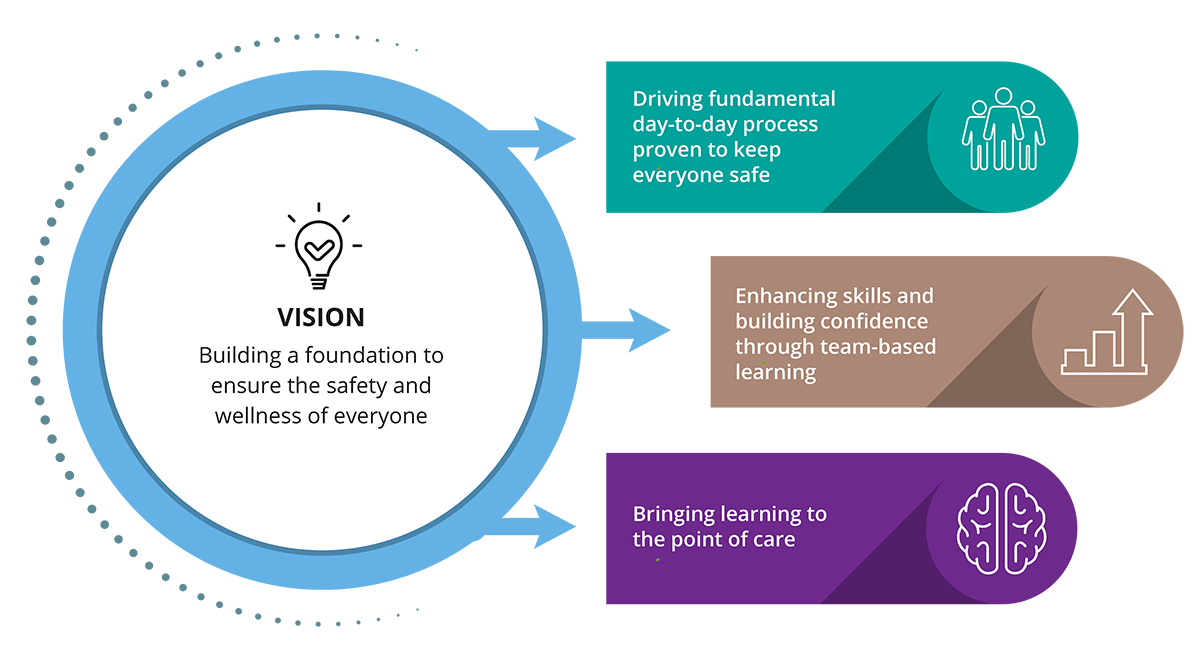A comprehensive way of teaching

TIDES aims to help teams and individuals who do similar work within an organization or who serve people with similar needs and safety risks. Furthermore, evidence suggests people must build skills over time so they can put their learning into practice, especially when it comes to ways of:
- preventing emergencies or de-escalating situations before they become emergencies
- responding safely and as a team during emergencies (or potential ones) (Ahmed et al., 2014; Härkänen et al., 2016; Salas et al., 2008).
To help people do this, TIDES creates a schedule to cover a learner’s career. This includes training people when they start new jobs and then training them again at set intervals afterwards. It also includes opportunities for people to build broader and more advanced skills.
TIDES brings together various groups customize and teach the program at an organization. These groups can include:
- clinicians and support staff
- facilitators and coaches (including with people with lived/living experience)
- teams who often work together.
After the first phases of customization and delivery, which include training and mentorship from the CAMH TIDES team, organizations can then continue to build skills among their staff independently. The program certifies TIDES educators and experts within an organization, so TIDES can keep going and growing for as long as an organization needs.
How TIDES works
The TIDES program combines several training methods. It’s a way of teaching that:
- builds on existing skills among learners
- develops insights by helping learners think about and analyze their actions and experiences (i.e., reflective practice)
- helps people apply what they learn to their work
- provides hands-on practice in realistic scenarios (i.e., simulation training).
People learn in various ways, including:
- attending lectures (in person or virtually)
- exploring case studies
- participating in guided conversations
- practicing physical and decision-making skills
- taking part in simulations based on real-life places and situations.
